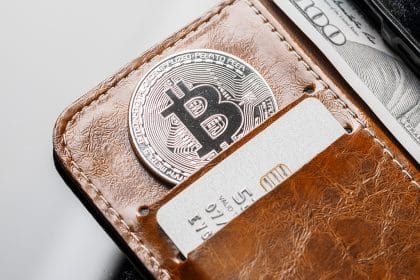If you want to start buying, mining, or selling Bitcoin, the first thing you need is a Bitcoin wallet. Even if you’re not involved in the world of cryptocurrency trade, you might have already heard of the term and have a vague understanding of how it works. However, you might not know about all the Bitcoin wallet options and how they differ from one another.
Let’s take a deeper look into Bitcoin wallets and find out which one would work best for you.
The Basics: What Does a Bitcoin Wallet Do?
A Bitcoin wallet is your means of identification and transaction security. Each wallet will have a unique private key when you first open the account associated with the wallet. Usually called a seed, the wallet will use the private key for Bitcoin exchanges, and only you will have access to it. Additionally, the wallet generates a public key, also known as an address, allowing it to send and receive Bitcoin to other wallets.
When you want to send Bitcoin to another user, for example, the wallet will combine your private key with the recipient’s public key. This allows the blockchain structure behind Bitcoin operation to have authentication and confirmation of the transaction, as all cryptocurrency connects to their respective public keys.
Since your Bitcoin wallet stores your private and public keys, it also holds your Bitcoin, much like a regular wallet does with currency.
Types of Bitcoin Wallets
Considering a Bitcoin wallet is used to store one of the most valuable cryptocurrencies globally, there have been many developments and ways to increase both security and accessibility to wallets depending on how users want to use Bitcoin.
Desktop Wallets
Some of the most common and secure wallets that allow regular Bitcoin transactions are desktop wallets. These are installed on your PC and store all the necessary information inside your hard drive. They don’t rely on third-party data and use better encryption methods to save the files securely on the PC. The main benefit of desktop wallets is that they’re still connected to the internet (depending, of course, on your PC’s connection), and you can conduct Bitcoin transactions, making them perfect for users that trade small amounts of Bitcoin regularly.
Web Wallets
Web-based wallets, as their name suggests, store all your data and keys on a third-party (usually the operator’s) server. The main benefit of web wallets is increased accessibility, as they can be connected to either a PC or a mobile device to conduct Bitcoin transactions. However, you’re storing all your information, and Bitcoin, on someone else’s computer, so there is noticeable downshift in security compared to mobile and PC wallets. If you plan on using web wallets, do your research thoroughly to ensure that the company can be trusted with your data (and money).
Mobile Wallets
Like desktop wallets, mobile wallets store information directly on your mobile device. This not only allows you to access Bitcoin directly from your phone but also provides an additional payment method for stores that accept Bitcoins. Mobile wallets usually don’t use the full wallet technology, but work with a smaller subset of the blockchain network to ensure authenticity. The near-field communication method also means you don’t need an internet connection for Bitcoin transactions. Most mobile wallet providers work with both iOS and Android devices. The main downside of mobile wallets is reduced security, since phones are more prone to hacker attacks, and losing the phone also means losing access to the Bitcoin wallet. Be careful where you put your phone and refrain from holding large amounts on a mobile wallet.
Physical Wallets
Unlike software-based wallets mentioned above, a physical wallet is a piece of hardware, usually a card or a coin, with a preloaded amount of Bitcoin. The private key on these wallets is usually sealed on the wallet itself. Since it’s a piece wholly disconnected from the internet, it’s impossible to hack into. However, you can’t do much with the stored Bitcoin other than sitting on it or selling it later. They’re valued as collector pieces or long-term investments, but some countries may consider them counterfeit money due to a lack of Bitcoin regulation, so do your research before ordering one.
Paper Wallets
Although they could be considered a subtype of physical wallets, users can generate paper wallets and print them on a piece of paper, usually containing QR codes for the keys. Some providers offer more durable paper wallets and provide tamper-proof designs for increased safety. The paper wallet can be a long-term Bitcoin storage, but be mindful of where you put it as it’s still a piece of paper. Laminating it and storing it in a safety box works similarly to keeping (a large amount of) cash. Alternatively, the wallet can be scanned by a phone to extract the Bitcoin inside when needed.
Use a Bitcoin Wallet Wisely
Whatever option for a Bitcoin wallet you choose, keep in mind its ease of use and security. Software wallets are prone to hacking attacks, and physical wallets are best used for long-term storage and one-off transactions. Bitcoin is a valuable piece of currency, even in small amounts, so you need to take every necessary precaution to protect your investment.
Disclaimer: Coinspeaker is committed to providing unbiased and transparent reporting. This article aims to deliver accurate and timely information but should not be taken as financial or investment advice. Since market conditions can change rapidly, we encourage you to verify information on your own and consult with a professional before making any decisions based on this content.

Hitesh is a digital marketing strategist and entrepreneur with more than 15 years of experience in digital marketing, start-ups, branding, and customer acquisition strategies. Hitesh is the CEO and Founder of Reposition Group, which specialises in digital growth strategies for companies in the cryptocurrency market such as Bitamp.com





